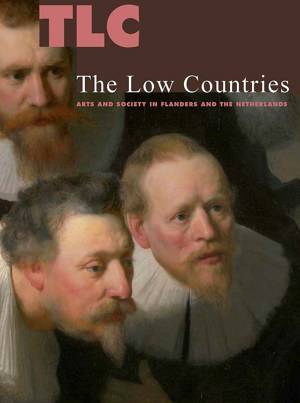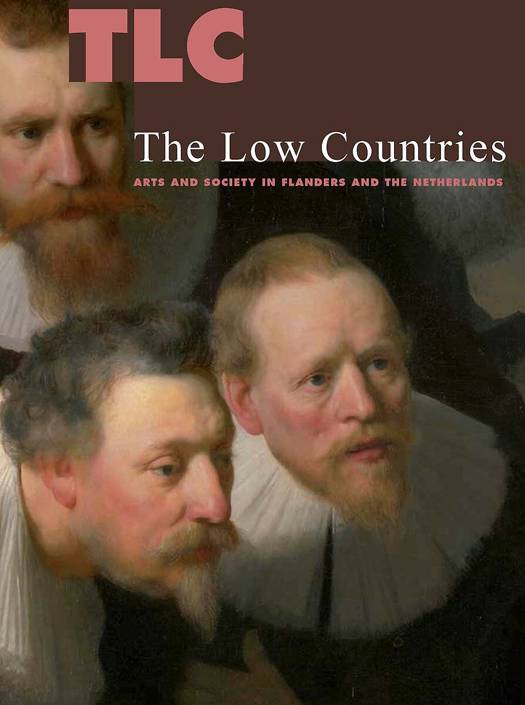
Je cadeautjes zeker op tijd in huis hebben voor de feestdagen? Kom langs in onze winkels en vind het perfecte geschenk!
- Afhalen na 1 uur in een winkel met voorraad
- Gratis thuislevering in België vanaf € 30
- Ruim aanbod met 7 miljoen producten
Je cadeautjes zeker op tijd in huis hebben voor de feestdagen? Kom langs in onze winkels en vind het perfecte geschenk!
- Afhalen na 1 uur in een winkel met voorraad
- Gratis thuislevering in België vanaf € 30
- Ruim aanbod met 7 miljoen producten
Zoeken
The Low Countries
Arts and Society in Flanders and the Netherlands
Dirk Van Assche, Manfred Sellink
Boek | Engels
€ 37,00
+ 74 punten
Omschrijving
“About suffering they were never wrong, The old Masters”
Dutch and Flemish Artists around the Globe
On 20 January 2017, a mural appeared on Boulevard Barthélémy on the Canal in Brussels, of an imminent beheading. The knife and the fear on the face of a child in the depicted scene raised a furore. People thought of IS executions, and panicked.
Until it transpired that the anonymous street artist responsible had copied a section from a Caravaggio painting, The Sacrifice of Isaac (1603). The hand with the knife belongs to Abraham, a father who is about to murder his son. The hand on Abraham’s arm, holding him back, belongs to the angel, to whom Abraham surrenders at the last moment.
As if to say – since an understanding of traditions, in this instance of painting, the Bible, radically changes both perception and experience of the image –, it’s all about the context, stupid. Panic
and indignation give way to uncertainty and hesitation. The complexity of the images invites us to think. Our judgement no longer comes down like an axe, but is suspended.
Art, like everything really, exists in context: every thing refers to other things, from the past or from elsewhere. Artists always build on the work of their predecessors. That network provides a frame of reference.
It is therefore worth our while to keep learning more about the canon, traditions, the history of Christianity and the history of art, for example. Because the Old Masters were never wrong about suffering… nor about so much else.
This yearbook aims to present to the world the culture and society of the Dutch-speaking area which encompasses both the Netherlands and Flanders, the northern part of Belgium. The articles survey the living, contemporary culture of the Low Countries, as well as their cultural heritage.
In these pages you will find everything you always wanted to know about ‘this undigested vomit of the sea’ as a British metaphysical poet once called the Low Countries. They are at the very heart of Europe, the intersection of North and South, of the Latin and Germanic worlds.
Dutch and Flemish Artists around the Globe
On 20 January 2017, a mural appeared on Boulevard Barthélémy on the Canal in Brussels, of an imminent beheading. The knife and the fear on the face of a child in the depicted scene raised a furore. People thought of IS executions, and panicked.
Until it transpired that the anonymous street artist responsible had copied a section from a Caravaggio painting, The Sacrifice of Isaac (1603). The hand with the knife belongs to Abraham, a father who is about to murder his son. The hand on Abraham’s arm, holding him back, belongs to the angel, to whom Abraham surrenders at the last moment.
As if to say – since an understanding of traditions, in this instance of painting, the Bible, radically changes both perception and experience of the image –, it’s all about the context, stupid. Panic
and indignation give way to uncertainty and hesitation. The complexity of the images invites us to think. Our judgement no longer comes down like an axe, but is suspended.
Art, like everything really, exists in context: every thing refers to other things, from the past or from elsewhere. Artists always build on the work of their predecessors. That network provides a frame of reference.
It is therefore worth our while to keep learning more about the canon, traditions, the history of Christianity and the history of art, for example. Because the Old Masters were never wrong about suffering… nor about so much else.
This yearbook aims to present to the world the culture and society of the Dutch-speaking area which encompasses both the Netherlands and Flanders, the northern part of Belgium. The articles survey the living, contemporary culture of the Low Countries, as well as their cultural heritage.
In these pages you will find everything you always wanted to know about ‘this undigested vomit of the sea’ as a British metaphysical poet once called the Low Countries. They are at the very heart of Europe, the intersection of North and South, of the Latin and Germanic worlds.
Specificaties
Betrokkenen
- Auteur(s):
- Uitgeverij:
Inhoud
- Aantal bladzijden:
- 320
- Taal:
- Engels
- Geïllustreerd:
- Ja
Eigenschappen
- Productcode (EAN):
- 9789079705290
- Verschijningsdatum:
- 10/04/2018
- Uitvoering:
- Boek
- Afmetingen:
- 170 mm x 235 mm
- Gewicht:
- 865 g

Alleen bij Standaard Boekhandel
+ 74 punten op je klantenkaart van Standaard Boekhandel
Beoordelingen
We publiceren alleen reviews die voldoen aan de voorwaarden voor reviews. Bekijk onze voorwaarden voor reviews.









